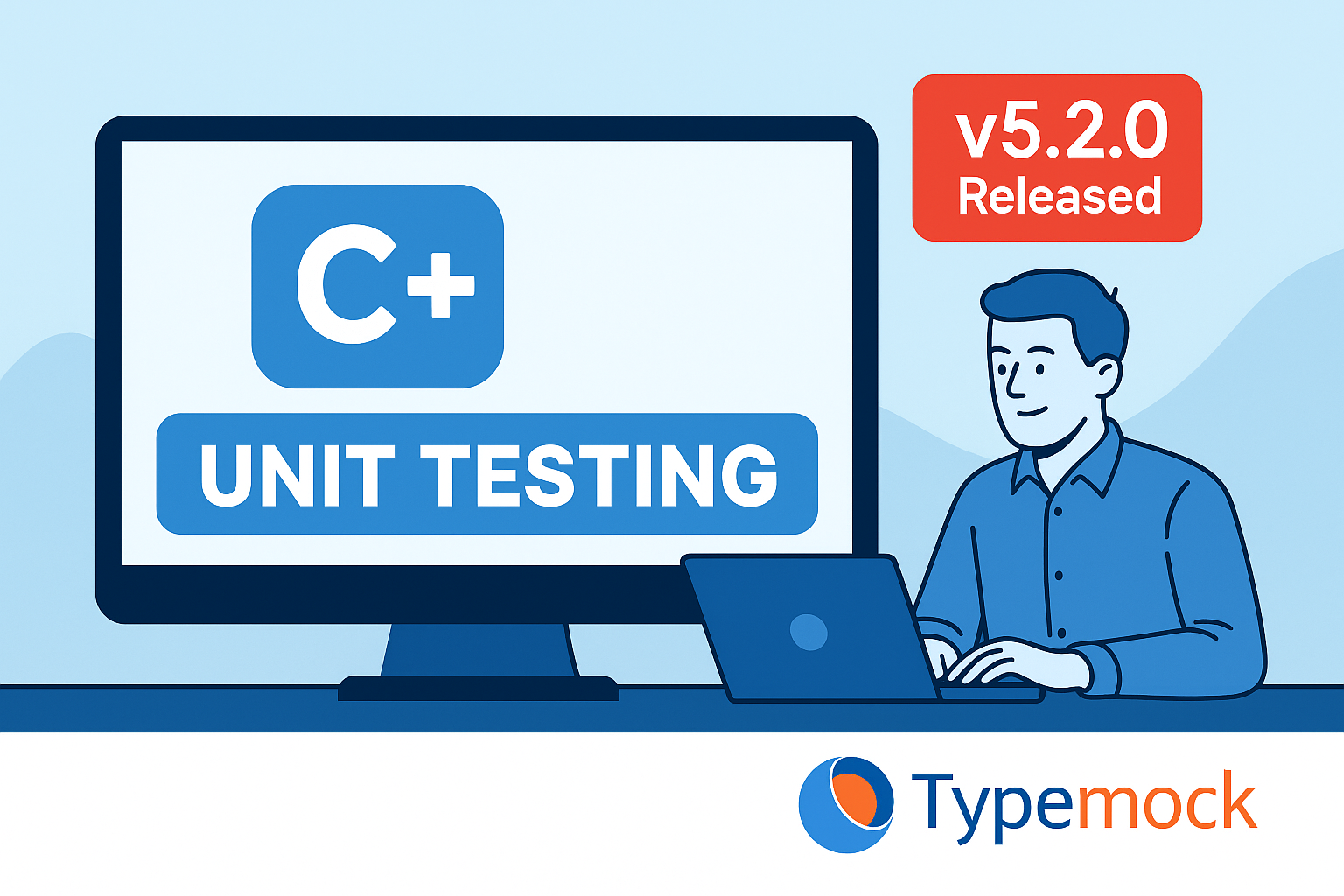Many development teams skip unit testing in the name of speed, but what they don’t realize is that this shortcut often leads to hidden costs – wasted time, bloated tech debt, and late-stage bug fixes that slow down releases. Investing in unit testing and mocking frameworks like Typemock not only prevents costly regressions but also accelerates development in the long run.
1. Debugging Production Failures is Expensive
Skipping unit tests often leads to bugs slipping into production. A bug caught in production is far more expensive to fix than one identified during development. The cost of fixing a bug increases exponentially the later it is found in the software development lifecycle.
The Hidden Cost:
- Emergency patches disrupt regular development cycles ⏳
- Developers spend hours debugging instead of building new features 🛠️
- Customer trust is damaged due to unexpected failures 🔥
How Mocking Helps:
Mocking frameworks allow developers to isolate components, ensuring that unit tests catch potential issues before they reach production. By simulating external dependencies, you can test edge cases and avoid costly production failures.
Example: Mocking a third-party API in unit tests ensures that failures in the API don’t break your application.
|
1 2 3 4 5 6 7 8 9 10 |
[TestMethod] public void Should_ReturnMockedData_When_ApiFails() { var apiService = Isolate.Fake.Instance<ApiService>(); Isolate.WhenCalled(() => apiService.GetData()).WillReturn("Mocked Response"); var result = apiService.GetData(); Assert.AreEqual("Mocked Response", result); } |
2. Skipping Tests Leads to Tech Debt Accumulation
Every time you release code without tests, you increase technical debt. Over time, this makes the codebase fragile, harder to maintain, and more likely to break with each update.
The Hidden Cost:
- Developers avoid refactoring due to fear of breaking existing functionality ⚠️
- Future changes become slow and error-prone ⏳
- Onboarding new developers takes longer due to lack of test coverage 📚
How Mocking Helps:
By using mocking frameworks, teams can confidently refactor code, knowing that unit tests will catch unintended regressions. Mocking reduces dependencies in testing, making it easier to maintain and scale software over time.
Example: Using mocks to safely refactor database interactions.
|
1 2 3 4 5 6 7 8 9 10 |
[TestMethod] public void Should_ReturnCorrectValue_AfterRefactoring() { var dbService = Isolate.Fake.Instance<DatabaseService>(); Isolate.WhenCalled(() => dbService.GetCustomerName(1)).WillReturn("John Doe"); var result = dbService.GetCustomerName(1); Assert.AreEqual("John Doe", result); } |
3. Late-Stage Bug Fixes Cause Delays
The later a bug is found, the more expensive it is to fix. Bugs discovered during integration or user testing require rework, delaying releases.
The Hidden Cost:
- Rewriting large sections of code to fix late-stage issues 🏗️
- Delayed product launches or missed deadlines 📅
- Increased testing and QA cycles due to unstable code 🛠️
How Mocking Helps:
Mocking allows you to catch and fix bugs during development, before they escalate into major issues. By testing components in isolation, you ensure they behave correctly before integration.
Example: Mocking user authentication logic to prevent last-minute security flaws.
|
1 2 3 4 5 6 7 8 9 10 |
[TestMethod] public void Should_AuthenticateUser_When_CredentialsAreValid() { var authService = Isolate.Fake.Instance<AuthService>(); Isolate.WhenCalled(() => authService.Login("user", "password")).WillReturn(true); var isAuthenticated = authService.Login("user", "password"); Assert.IsTrue(isAuthenticated); } |
4. Developer Morale Suffers When Tests Are Missing
A lack of unit tests doesn’t just impact software – it affects developer morale. Without proper test coverage, developers feel less confident making changes, leading to frustration and burnout.
The Hidden Cost:
- Developers hesitate to make changes due to risk of breaking things 🤯
- Increased stress from firefighting production bugs 🚒
- Lower productivity due to fear-driven development ❌
How Mocking Helps:
With mocking frameworks, developers gain confidence in their changes, knowing that well-structured unit tests act as a safety net. This creates a healthy development culture where code quality remains high, and innovation thrives.
Example: Mocking dependencies to enable safe refactoring.
|
1 2 3 4 5 6 7 8 9 10 |
[TestMethod] public void Should_NotBreak_When_DependencyChanges() { var paymentService = Isolate.Fake.Instance<PaymentService>(); Isolate.WhenCalled(() => paymentService.ProcessPayment(100)).WillReturn("Success"); var result = paymentService.ProcessPayment(100); Assert.AreEqual("Success", result); } |
Conclusion
Skipping unit tests may seem like a shortcut, but it leads to higher costs in the long run – production failures, bloated tech debt, delayed releases, and developer burnout. By integrating mocking frameworks like Typemock Isolator, teams can reduce risk, improve code quality, and speed up development.
✅ Ready to eliminate the hidden costs of skipping unit tests? Try Typemock Isolator today and build software with confidence. 👉 Download Isolator and Isolator++




